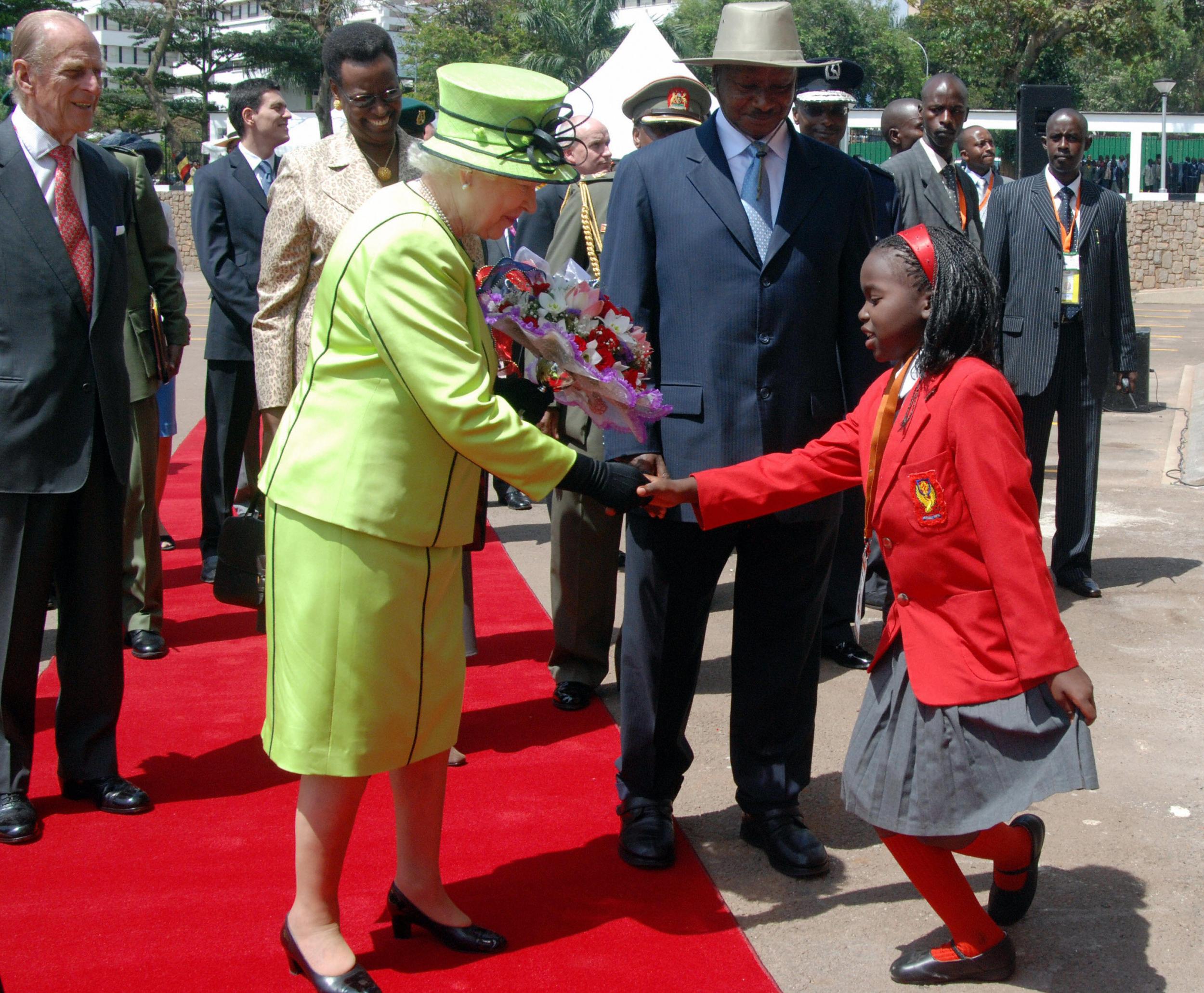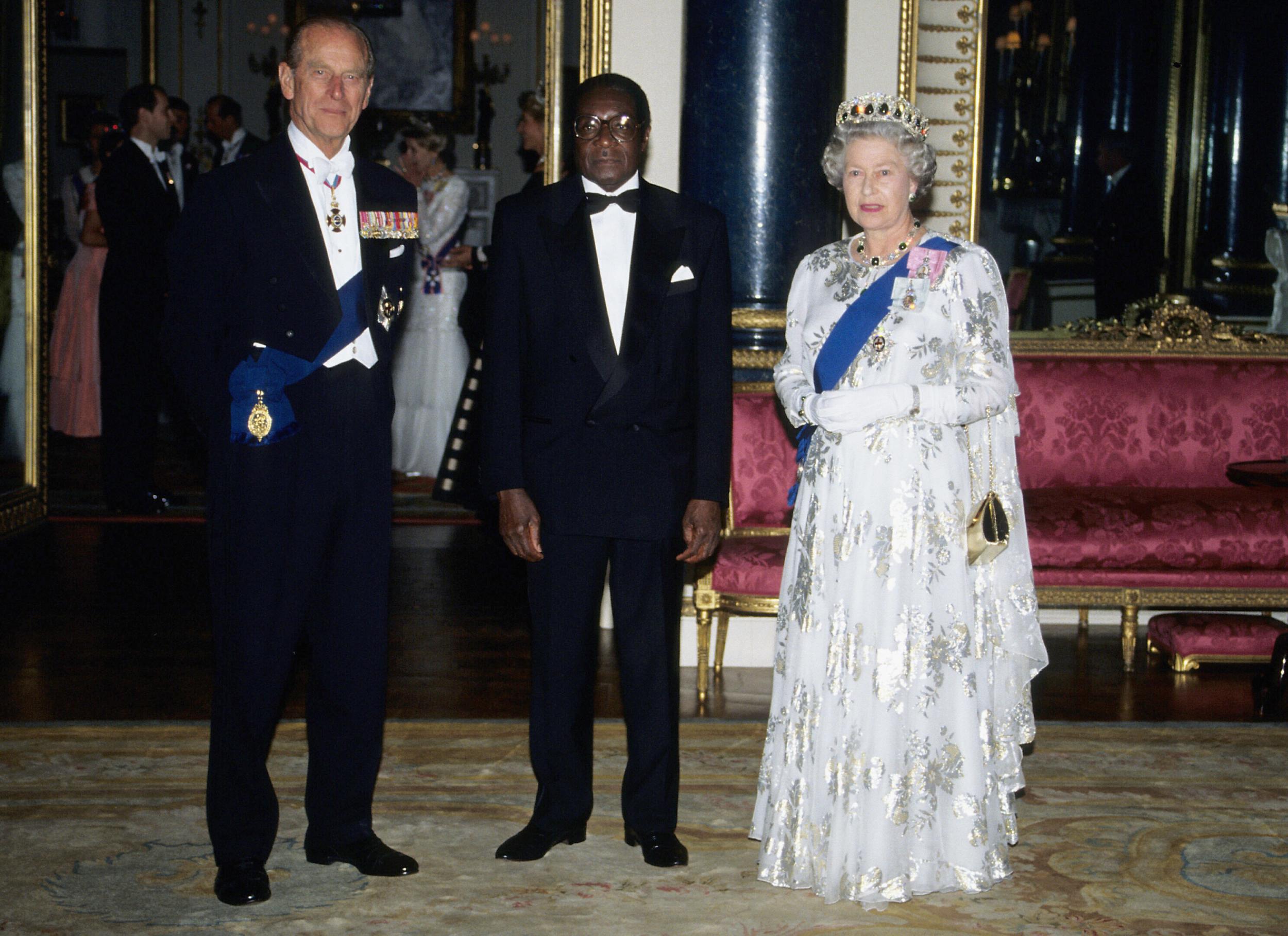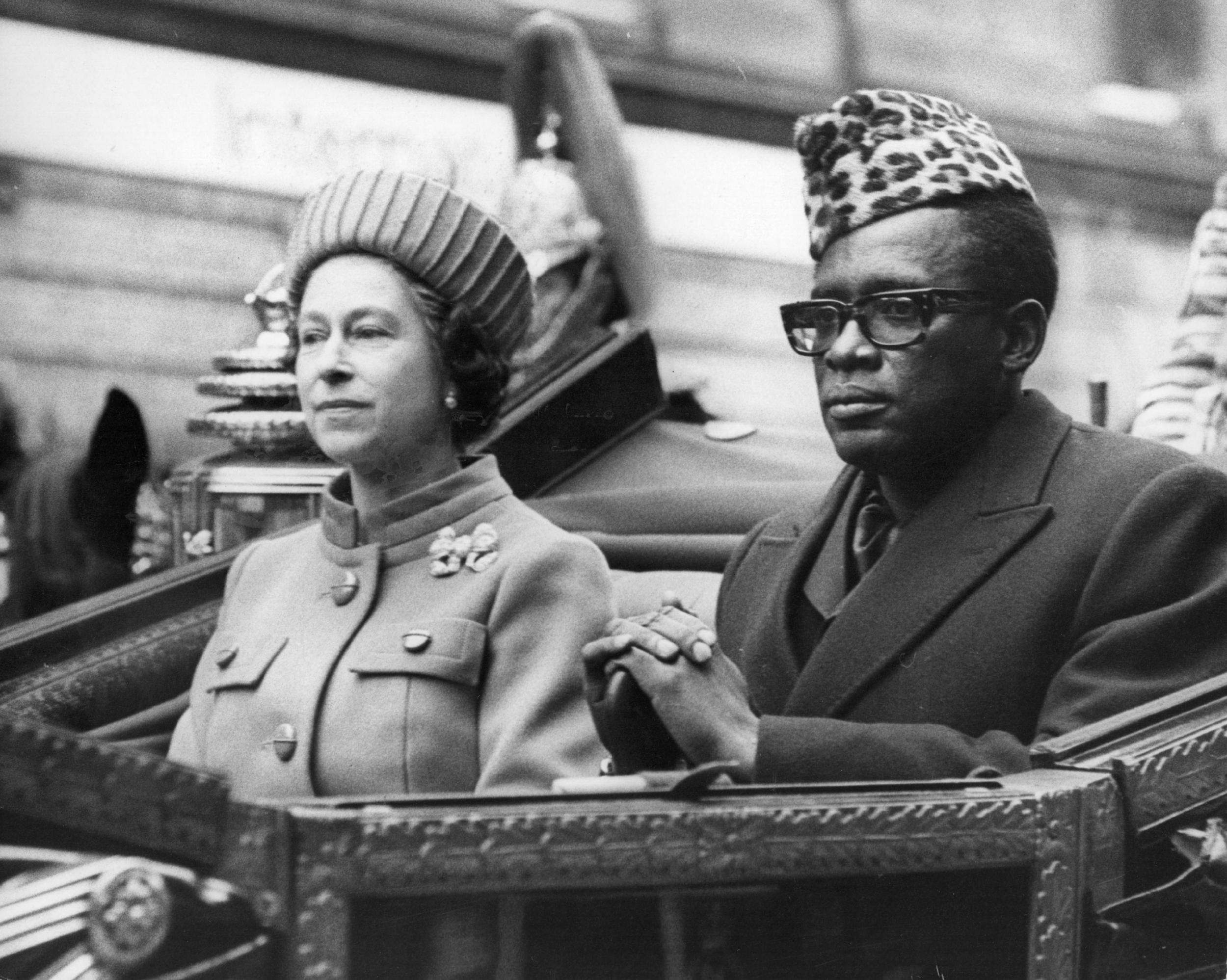Trump UK visit: The Queen’s many encounters with controversial world leaders
Monarch obliged to meet with divisive figures from world politics at invitation of government as matter of course and regardless of personal feelings about their conduct

The Queen is set to meet Donald Trump at Windsor Castle on Friday 13 July – a visit that has provoked outrage in some quarters.
An online petition to stop the US president entering the UK has received almost two million signatures while mass demonstrations are expected in London and plans are afoot to fly an inflatable “Trump Baby” wearing a nappy over the capital.
Opposition to the leader’s “zero tolerance” immigration policies and inflammatory rhetoric remains fierce.
As constitutional monarch, the Queen has a duty to meet with political leaders whenever Downing Street issues an invitation for diplomatic or business purposes, whether she approves of them personally or not.
This ceremonial obligation has meant she has played host to a number of divisive figures from the world stage over the course of her long career.
Nursultan Nazarbayev
The strongman president of Kazakhstan runs an authoritarian regime and has been accused of suppressing dissent and carrying out human rights abuses.
He met the Queen in November 2015 – and was given a guard of honour at Buckingham Palace – during a two-day business trip as a guest of prime minister David Cameron.
He had won a general election with 97.7 per cent of the vote earlier that year, a result widely assumed to have been manipulated.
Xi Jinping
Human rights and “Free Tibet” protesters were out in force when President Xi and his wife Peng Liyuan visited the palace in October 2015.
Concerns were also raised about the impact of cheap Chinese steel undercutting British exports and the security ramifications of Chinese investment in the UK’s nuclear power plants.
Mr Xi’s predecessor, Hu Jintao, had been the subject of similar outrage when he met the Queen in November 2005.
Yoweri Museveni
The Ugandan leader had been accused of deploying state forces to quell opposition to his 30-year rule when the Queen met him at a summit of Commonwealth leaders in Malta in 2015.

He was also notorious for signing the Anti-Homosexuality Act, which proposed the death penalty for people in same-sex relationships, a proposal later ruled unlawful.
Mr Museveni described the Queen, bizarrely, as “a friend with mutual benefits” in a birthday tweet in June 2017.
King Abdullah
Demonstrators lined the Mall in the first week of November 2007 when the Saudi monarch arrived, with activists incensed over the suppression of women and the LGBT+ community in his homeland.
The Liberal Democrats boycotted his visit and calls were heard for the reopening of an inquiry into a multi-billion dollar arms deal over corruption allegations.
The king also upset Londoners by claiming the British authorities might have prevented the 7/7 bombings had they heeded a Saudi intelligence report.
As crown prince, Abdullah had visited the Queen at Balmoral in 2003, where she had surprised him by racing around the winding nearby roads in a royal car - demonstrating the skills she learned as a young woman serving with the Auxiliary Territorial Service as a driver during the Second World War.
George W Bush
The Queen hosted George W Bush and his wife Laura at Buckingham Palace in the early days of the War on Terror on 19 November 2003, who was greeted by Tony Blair and treated to a 41-gun salute despite widespread opposition to American intervention in Iraq and the satirical toppling of a Bush statue in Trafalgar Square.
President Bush was also entertained at Windsor Castle, taking tea with the monarch in St George’s Hall on 15 June 2008, during the final months of his administration.
Vladimir Putin
Mr Putin was the first Russian head of state to visit Britain since Tsar Nicholas I in 1843 when he toured the capital in a royal carriage in June 2003.
Protests were staged in opposition to Russian intervention in Chechnya in the capital and in Edinburgh when he arrived there.
Relations have only soured since – not least over the annexation of Crimea in 2014 and the poisoning of Sergei and Yulia Skripal in Salisbury this year.
Bashar al-Assad
Mr Assad became the first Syrian president to meet the Queen when he visited Britain to meet with Mr Blair to discuss Middle Eastern stability.
Today, the Assad regime has received international condemnation over its conduct in the country’s civil war, particularly over the use of chemical weapons against civilians.
Robert Mugabe
One of the most notorious of royal duties came when the Zimbabwean dictator was awarded an honorary knighthood in 1994.
He was later stripped of the title under Gordon Brown over the oppressive and corrupt nature of his administration and habit of rigging elections.

Mugabe became an outspoken critic of Britain, attacking it as a failed colonial power.
Muhammad Suharto
Indonesia’s president was courted as a potential Cold War ally – and met the Queen in 1979 – despite the terrible abuses of power he oversaw during the anti-Communist purge of 1965, later described by the CIA as “one of the worst mass murders of the 20th century” in which anywhere between 400,000 and three million Indonesians were killed.
President Suharto ruled between 1967 and 1998 before his authoritarian New Order government became embroiled in corruption scandals and accused of mismanaging the economy and being driven from office.
Nicolae Ceausescu
The hard-line Romanian communist leader was welcomed to Britain by the then-prime minister, James Callaghan, in June 1978 as the first head of a Soviet satellite state to visit, an attempt to boost East-West relations.
Like Mugabe, Ceausescu’s honorary knighthood was also later revoked.
Mobutu Sese Seko
Seko, president of Zaire (now Democratic Republic of Congo) made a state visit to Britain in 1973 and was regarded by the British establishment as a key player in its bid to stop the spread of communism in post-colonial Africa.

He was later found to have embezzled £12bn from his country’s treasury.
Emperor Hirohito
The arrival of Japan’s emperor was met with considerable hostility by angry Second World War veterans, many of them prisoners of war who had suffered terribly at the hands of their Japanese captors in the Pacific.
They met the Queen’s horse-drawn carriage with silence, some turning their backs or wearing red gloves as a reminder of those killed in Japanese captivity.
“We cannot pretend that the past did not exist,” said the Queen at a state banquet that evening.
“We cannot pretend that the relations between our two peoples have always been peaceful and friendly.
“However, it is precisely this experience which should make us all the more determined never to let it happen again.”
The visit of the emperor’s son and heir Akihito in May 1998 was nevertheless met with a similar reception.
Join our commenting forum
Join thought-provoking conversations, follow other Independent readers and see their replies
Comments